- Home
- Allison Brennan
Too Far Gone
Too Far Gone Read online
Begin Reading
Table of Contents
About the Author
Copyright Page
Thank you for buying this
St. Martin’s Press ebook.
To receive special offers, bonus content,
and info on new releases and other great reads,
sign up for our newsletters.
Or visit us online at
us.macmillan.com/newslettersignup
For email updates on the author, click here.
The author and publisher have provided this e-book to you for your personal use only. You may not make this e-book publicly available in any way. Copyright infringement is against the law. If you believe the copy of this e-book you are reading infringes on the author’s copyright, please notify the publisher at: us.macmillanusa.com/piracy.
Just because you’re paranoid doesn’t mean they aren’t after you.
∼ Catch-22
CHAPTER ONE
Charlie McMahon sat in the corner of Java Antonio where he could see everyone who walked in. He held the cup of tea in front of him, hands shaking, hot liquid spurting out the top. He put the cup down, absently wiped his burned hand on his jacket. The one sip he’d risked made his stomach ache. Every voice, every clink of cups, every spray of steam from the espresso machine, scratched the inside of his brain until he felt as if his head would explode.
He reached into the pocket of his jacket and retrieved the nearly empty aspirin bottle. He poured four into his shaking hand. One fell to the floor. He watched it roll into the corner then stop amid the dust and dirt and an empty sugar wrapper.
The remaining three he popped into his mouth and chewed, the bitter taste making him scowl. He sipped the tea again, a larger gulp, and burned the roof of his mouth. He barely noticed the pain because his damn head wouldn’t stop pounding.
Paul was late. Two weeks ago Paul finally agreed to meet with him, but in a faraway place where there was no chance that anyone they knew would see them together. Paul refused to look Charlie in the eye, then told Charlie that he was paranoid.
“Maybe you should go on a vacation. Take a month and relax,” Paul had suggested. “Maybe you’re sick. You’re acting crazy, and you have to stop.”
Charlie knew that something was wrong with him. Physically, mentally. He knew what it was, it was on the fringe of his memory, but every damn time he tried to catch the thought it escaped. The more he chased the truth, the more his head ached and the thought, the memory, the truth faded away. Faded like he was fading.
He looked down at his hands. They seemed almost translucent. He could see them shake, but couldn’t feel them. It was as if he was disconnected from his body.
He closed his eyes, opened them. His hands were there, normal, bruised on the knuckles. A healing cut across the back of his right hand.
How did that happen?
Charlie had pushed Paul, and his friend didn’t push back. When Paul finally looked him in the eye, Charlie realized that Paul knew exactly what was wrong with him. Paul remembered what happened when Charlie couldn’t, yet he wouldn’t help him!
“What do you know, Paul? Dammit, I’m dying!”
“You’re not dying. Just … you need help. Leave San Antonio. And stop trying to remember.”
“What did I forget? You know, don’t you? Why won’t you tell me?”
He’d hit Paul. He remembered that … but that was nearly two weeks ago. Why were both of his hands bruised? And where was Paul?
Paul sent him a message late last night.
I found something. Can’t talk on the phone. I’ll meet you anywhere you want at 10:30 tomorrow morning.
Charlie picked Java Antonio because it was far from Clarke-Harrison. Far from home. Far from anyone who might know him or Paul. An anonymous coffee shop in the middle of the city. It felt safe … until now. Right now the walls were closing in on him and he couldn’t think!
Leave, Charlie. Walk away. Disappear.
Paul was late. Was he dead? Had they killed him? Or had he become one of them?
Who the fuck are they? You’ve lost your mind. No one is after you. Paul was placating you. He’s going to call the cops. Or a fucking mental institution. He didn’t believe you. The meeting is a setup. They’re going to lock you up and you’ll never know the truth.
The overwhelming sensation to run, to go far away, hit Charlie and he got up too quickly, knocking over his tea. But the lid stayed on and only a small stream of amber liquid dribbled out. He picked up the cup, stared at it.
All Charlie wanted to know was what had happened to him. Why he had a journal in his handwriting but didn’t understand what any of it said. Why he had the distinct feeling that he knew something important—something dangerous—but he couldn’t remember what. He’d studied his calendar and his phone and email and knew that whatever had happened to him had happened at work.
Maybe. Because you’re not really sure of anything, are you, Charlie?
That’s why he needed Paul. They’d worked together for eight years before Charlie was fired. Paul was the only one Charlie trusted.
He lied to you. He didn’t look you in the eye.
Charlie sat back down. He didn’t know who else to turn to, he didn’t know who he could trust. Memories scratched at him, trying to find a way to talk to him, to tell him the truth. But could he even trust them?
Every time he tried to listen, the whispers of truth disappeared in a wave of agony.
Voices drifted his way. He turned his head slowly, trying to figure out who was talking about him. Two teenage girls.
They’re not talking about you.
Why weren’t they in school?
It’s July. School’s out.
They laughed, both with their heads down looking at their phones. Something about that was familiar … was it the phone? The way the brunette girl was holding it? Something familiar …
Her face shifted, and she became someone else. She saw Charlie looking at her and quickly turned away and became a teenager again. She whispered to her friend. He’d scared her.
“Hello, Charlie.”
Charlie jumped, looked left and right. A man he’d never seen before stood in front of him. But he wasn’t looking at him. He was looking at a display. Had he spoken? Was it in Charlie’s head?
“Who are you?” he whispered.
“You need to stop asking questions, Charlie. You won’t like the answers.”
“Where’s Paul?”
He’d spoken too loud. People glanced at him, then quickly turned away. The teenagers shifted away from him, their heads together.
Now they were talking about him. Now they sounded scared.
Charlie didn’t want to scare anyone. Especially kids. His daughter was fifteen. He hadn’t seen her in almost three months, because Lisa said he needed help. She was scared of him, that he would hurt her. Hurt the kids.
I would never hurt you, Lisa. I would never hurt the kids. I love you.
He’d tried to get help, but only felt worse. More paranoid. More … forgetful.
He wrote hundreds of pages in code and didn’t know what it meant. He’d showed Paul his journal two weeks ago and Paul knew. But he said he didn’t.
He lied to you. Why can’t you see that there is no one to trust?
“Where are your notes, Charlie?” the stranger asked him.
Charlie hadn’t seen his lips move. What if he wasn’t talking? What if Charlie was hearing things?
Again. Hearing voices again.
Everything was bright, too bright. His body and mind disconnected. Impossible.
Just a reaction to …
Charlie turned, chasing the memory. Reaction to what? What?
His head ached and the memory turned black.
This man had answers. This man knew what THE FUCK WAS GOING ON!
remember remember remember remember remember
It was so close … but he couldn’t grasp it.
Remember or you’ll be dead.
“Where’s Paul? Did you kill him?”
Silence fell around him. Was he still talking too loud? Shouting? He could barely hear himself. Everything inside was suppressed by cotton, as if he were speaking through a vacuum.
The girls got up and walked to the other side of the coffee shop. They were talking to someone behind the counter. Because of him? Had he scared them?
Forget the girls. This man has the answers you need. Make him talk!
Someone was walking toward him. Who? Who knew him?
Charlie hit his head with his palm. It hurt, but he had to remember!
“Sir.”
Charlie looked up again. A young black kid stood there. He wore an apron. Charlie’s vision was blurry and he couldn’t make out his name tag. The kid looked nervous.
This kid is just a guy doing his job. Doing his job and you’re freaking out his customers.
“I’m sorry,” he mumbled.
“Can I help you? Would you like me to call someone for you?”
He wanted to talk to the police, but he didn’t remember what he needed to tell them. He had tried talking to his wife, but she wouldn’t let him in, wouldn’t let him see their children. He didn’t blame her. He’d yelled at her … He’d talked to Paul … Paul was supposed to be here!
Paul had answers.
They’d killed Paul.
Charlie looked at his watch.
“Are you waiting for someone?” the manager asked.
“Paul’s late,” he said. “I think he’s dead.”
The belief that Paul was dead hit him so hard he wondered if he really knew that his best friend, his former colleague, was in fact dead. Had he seen him dead? Had he … God, had he killed him?
You didn’t kill Paul. You haven’t seen him in two weeks.
But Charlie couldn’t remember where he’d been yesterday. Just flashes of images. Of alleys and hiding and a one-room apartment in the middle of nowhere.
And numbers. So many numbers and formulas …
“Sir, are you okay?”
“No!” Charlie jumped up and the table fell over. He didn’t care that the lid popped off his tea and it splattered everywhere. Several people walked briskly out of the coffee shop. Two more had their phones to their ears. What were they doing? What were they saying?
Charlie knew what he had to do. This might be the only way to figure out what was wrong with him, what he knew that he couldn’t remember, why his head felt like it was going to go off like a fucking Roman candle!
A gun was in his hand. How did it get there? He didn’t remember putting a gun—two guns?—in his jacket. Why was he wearing a jacket? It was July in San Antonio. No wonder people were looking at him strangely.
People were screaming. Several ran out of the coffee shop. No, no! This wasn’t happening.
He fired a bullet into the ceiling.
“Everyone down! You!” He grabbed the manager and held the gun to his head. “Do you have a cell phone?”
“Y-yes.”
“You need to call Paul. Right now. Right the fuck now!”
He pulled the manager away from the windows. Self-preservation kicked in. He ordered one of the employees to lock the door. He held a gun on her, made her lock the door. She did.
“Down! Get down, everyone!”
People fell to the floor and froze. Someone was crying.
Stop, Charlie. Stop. This is insane.
“No else leaves until Paul gets here, understand? I don’t want to hurt anyone. I don’t want to hurt anyone. Okay? Okay?”
He was repeating himself. But he didn’t care. He would keep these people as long as necessary to get answers.
“Give me your cell phone,” he told the manager.
Charlie had stopped carrying a phone because he feared they—
who the fuck are they?
—were tracking him.
The manager reached into his apron and handed Charlie a phone. His hands were shaking.
“Put it on speaker. Call Paul.” Charlie recited his number by memory. He’d known Paul since college. Then eight years ago, Paul moved to San Antonio to work with Charlie. They were friends. Their wives were friends. They had barbecues and their sons were on the same baseball team. At least they had been before …
Before what? What, Charlie?
His head was about to explode.
The phone rang once.
Click.
A recording came on.
“This number is no longer in service. If you feel you’ve reached this recording in error, please check the number and try your call again.”
“You dialed wrong! Again!” Charlie repeated the number slowly.
The recording repeated.
Paul really was dead.
CHAPTER TWO
FBI Special Agent Lucy Kincaid geared up in the back of the SWAT van and followed team leader Leo Proctor to the staging area kitty-corner to the coffeehouse that was currently under control of a gunman. Lucy wasn’t part of the SWAT team. She was the newest trained hostage negotiator, though she would be second to Proctor for a minimum of six months. She wouldn’t be talking to the suspect today; she was tagging along on her first official outing after completing Hostage and Crisis Response Training at Quantico.
As soon as she stepped out of the air-conditioned van and into the hot Texas humidity, she began to sweat. Fortunately, she wasn’t decked out with an extra twenty-five pounds of SWAT gear; she was only required to wear her Kevlar vest and sidearm.
The FBI was here to back up the SAPD, who were taking lead in the hostage situation at Java Antonio, a small but popular independent coffee shop in downtown San Antonio.
Lucy followed Leo from the van while the rest of the team checked their weapons and gear.
“Lieutenant, sit-rep?” Leo said to the man clearly in charge who was directing personnel from the back of a police communications van. There were a dozen city and county vehicles filling all four streets that led to the intersection, which now held a tactical truck. Each street had been blocked off, and all businesses in a two-block radius evacuated or locked down.
“Proctor. Glad you’re here.” He glanced at Lucy.
“Agent Kincaid, hostage negotiator. Kincaid, Lieutenant Jordan Young.”
They shook hands. Young was forty and had the aura of former military officer, and it was clear by how his officers spoke to him that he garnered respect from his men and women.
“I need you to negotiate, Leo—I’ve already set up a command, I’m the highest-ranking officer here.”
“My people are your people,” Proctor said. “Kincaid’s my second.”
Being second essentially meant backing up the primary negotiator. Listening to all communication, taking notes, passing along information between the negotiator and command and vice versa.
Generally the individual in charge of the scene was not the same person negotiating with the suspect. That SAPD and the SA-FBI worked well together was a testament to the men and women who led each department and the teams who cross-trained together.
“I have two snipers, one on each corner building,” Young said, gesturing. “Two men in the back. If you can spare a pair I’d like to have them tag up with my team in the alley, and if you have a sniper we can use one back there. The rear is the only exit other than the front door.”
Proctor said in his radio, “Dunning, take your team and secure the back with SAPD; Ramirez, find a roost with clear line of sight to the emergency exit. From here on out, Lieutenant Young is in command of this operation and you’ll take direction from him, primary emergency channel.”
“Roger,” the team leader said over the radio.
“Suspect?” Proctor asked.
Young shook his head. “Working on
an ID. No cameras inside, but we have a description from one of the hostages who escaped during the initial confusion. In fact, a dozen people got out before the shooter locked down. From preliminary statements, the guy was talking to himself and acting ‘off’—weird was the word most used. He was wearing a thick windbreaker and it’s over ninety degrees and humid as hell. When the manager confronted him, he snapped—per a witness. Another witness said he acted like he was quote, ‘off his meds.’”
Unfortunately, Lucy knew that mental illness was one of the leading causes of spontaneous hostage situations. But generally, if the individual was mentally ill, they took people they knew hostage—family or friends—in a residence. This situation was distinctly different.
Young continued. “He fired two shots. Per witnesses, they both went into the ceiling. No one saw anyone injured inside. There are conflicting statements as to how many guns he has and what kind, though I’m going with one of the witnesses who stated he’s a gun owner and identified a nine-millimeter in the shooter’s hand, standard-capacity magazine, and a second handgun in his waistband, also a semi-auto—either a nine-mil or a forty-five.”
“Number of hostages?”
“Best guess is fourteen. Do you have thermal imaging in your truck? Fire can set up as well, but they’re still en route.”
“We got it,” Proctor said. “My tech just needs a minute.”
“Good. We need to know where he is, get some sense as to what’s going on in there.”
“Is this personal?” Proctor asked. “Target an employee? Customer?”
“Don’t know. We asked the witnesses for the basics, everyone said that he was alone and didn’t appear to know anyone. They are all sequestered down the street, my people are working to get more information. He hasn’t called out or made demands, but this whole thing started less than an hour ago. I need you to make contact, develop a rapport as we gather additional information. We need to de-escalate this as fast as possible.”
Proctor listened to his com then said, “Roger, hold positions.” He said to Young, “My team is in place, Ramirez has one hundred percent visual of the rear door.”

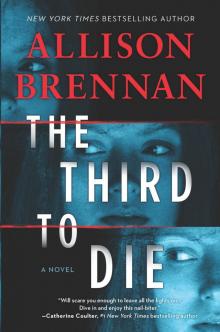 The Third to Die
The Third to Die Nothing to Hide
Nothing to Hide No Way Out
No Way Out Cold as Ice
Cold as Ice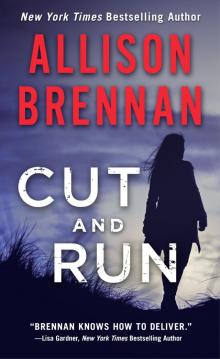 Cut and Run
Cut and Run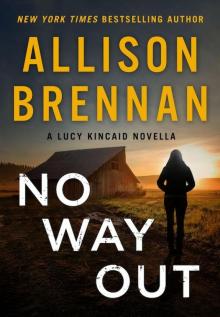 No Way Out (Lucy Kincaid Novels)
No Way Out (Lucy Kincaid Novels) Storm Warning
Storm Warning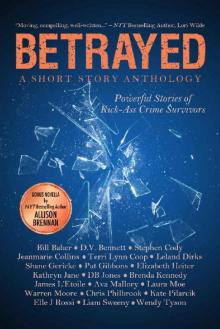 Betrayed: Powerful Stories of Kick-Ass Crime Survivors
Betrayed: Powerful Stories of Kick-Ass Crime Survivors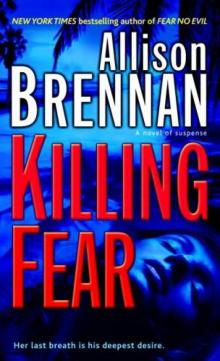 Killing Fear pb-1
Killing Fear pb-1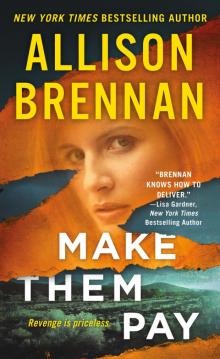 Make Them Pay
Make Them Pay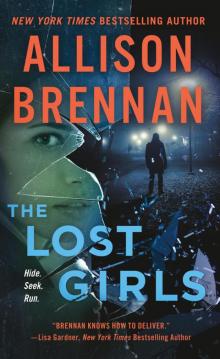 The Lost Girls
The Lost Girls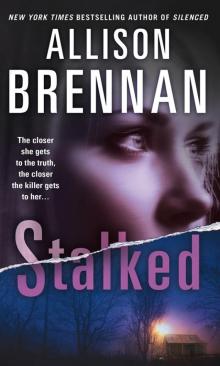 Stalked
Stalked Killing Justice
Killing Justice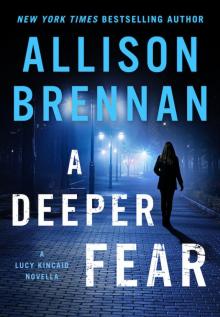 A Deeper Fear
A Deeper Fear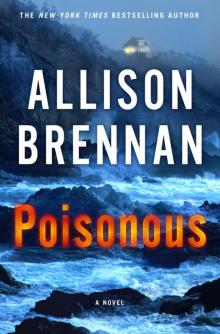 Poisonous
Poisonous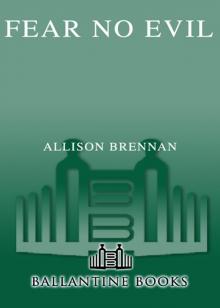 Fear No Evil
Fear No Evil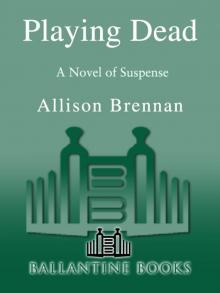 Playing Dead
Playing Dead Cold Snap
Cold Snap Vacation Interrupted
Vacation Interrupted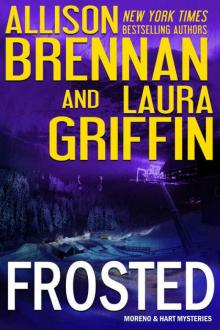 Frosted (Moreno & Hart Mysteries)
Frosted (Moreno & Hart Mysteries)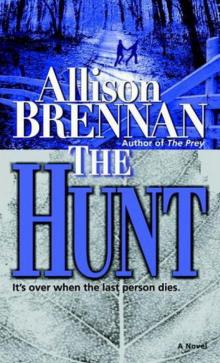 2 - The Hunt
2 - The Hunt Stolen
Stolen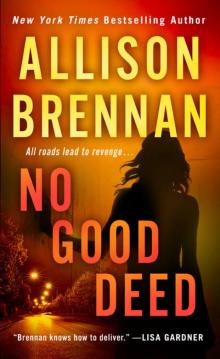 No Good Deed
No Good Deed Cutting Edge
Cutting Edge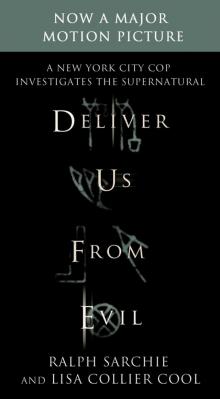 Deliver Us from Evil
Deliver Us from Evil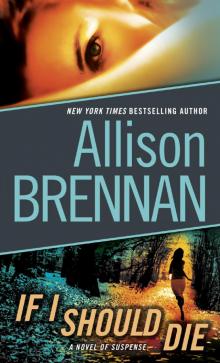 If I Should Die
If I Should Die Speak No Evil
Speak No Evil Silenced lk-4
Silenced lk-4 Original Sin sds-1
Original Sin sds-1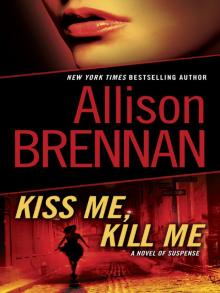 Kiss Me, Kill Me lk-2
Kiss Me, Kill Me lk-2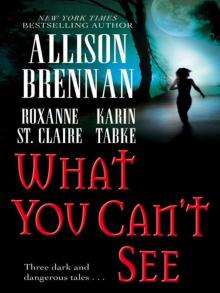 What You Can’t See
What You Can’t See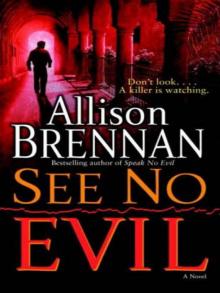 See No Evil
See No Evil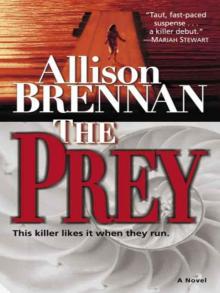 The Prey
The Prey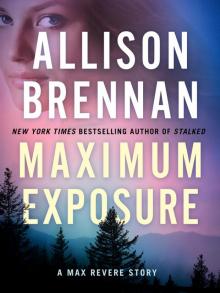 Maximum Exposure
Maximum Exposure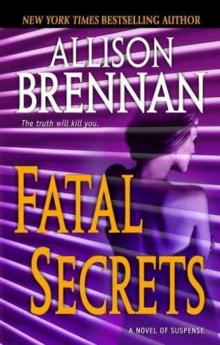 Fatal Secrets f-2
Fatal Secrets f-2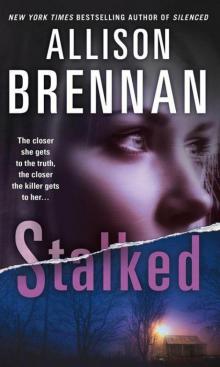 Stalked lk-5
Stalked lk-5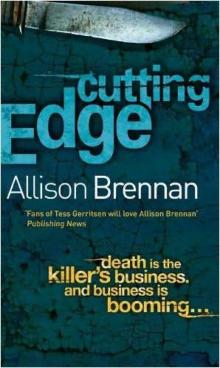 Cutting Edge f-3
Cutting Edge f-3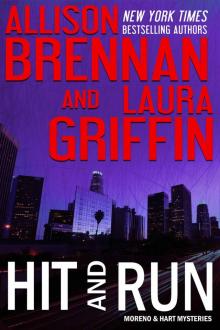 Hit and Run (Moreno & Hart Mysteries)
Hit and Run (Moreno & Hart Mysteries)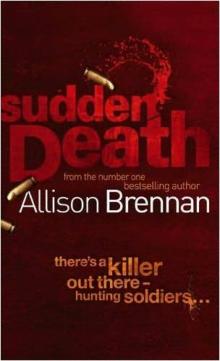 Sudden Death f-1
Sudden Death f-1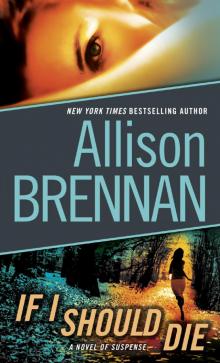 If I Should Die lk-3
If I Should Die lk-3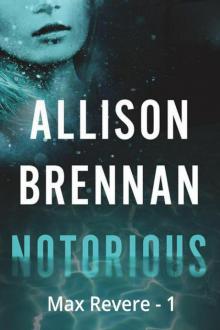 Notorious
Notorious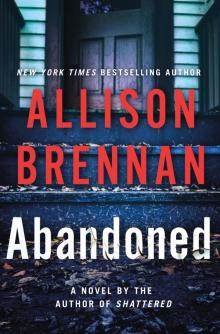 Abandoned
Abandoned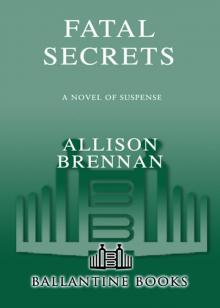 Fatal Secrets
Fatal Secrets The Hunt
The Hunt Carnal Sin sds-2
Carnal Sin sds-2 Love Is Murder
Love Is Murder Lost and Found
Lost and Found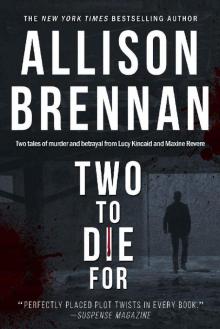 TWO TO DIE FOR
TWO TO DIE FOR Breaking Point
Breaking Point Best Laid Plans
Best Laid Plans Carnal Sin
Carnal Sin Silenced
Silenced Dead Heat
Dead Heat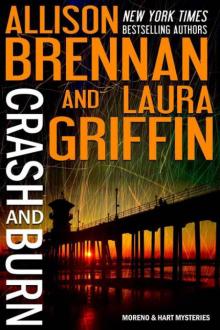 Crash and Burn
Crash and Burn Sudden Death
Sudden Death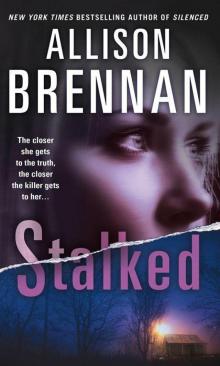 Lucy - 05 - Stalked
Lucy - 05 - Stalked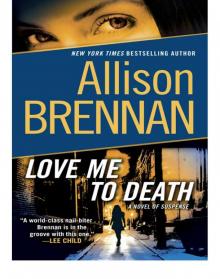 Mortal Sin
Mortal Sin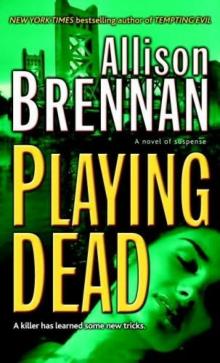 Playing Dead pb-3
Playing Dead pb-3 Kiss Me, Kill Me
Kiss Me, Kill Me Original Sin: The Seven Deadly Sins
Original Sin: The Seven Deadly Sins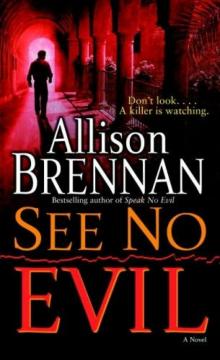 See No Evil e-2
See No Evil e-2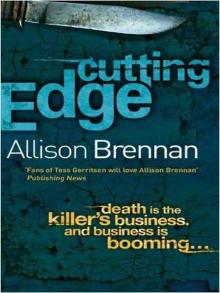 Cutting Edge: A Novel of Suspense
Cutting Edge: A Novel of Suspense Original Sin
Original Sin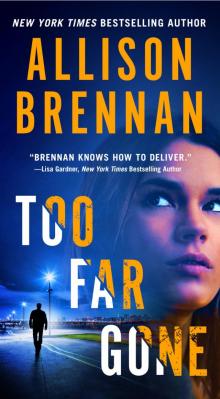 Too Far Gone
Too Far Gone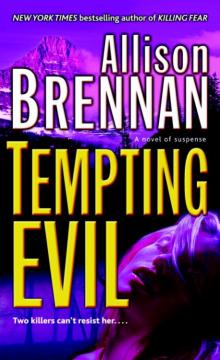 Tempting Evil
Tempting Evil Shattered
Shattered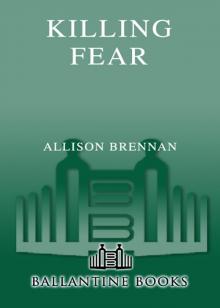 Killing Fear
Killing Fear Murder in the River City
Murder in the River City Love Is Murder (lucy kincaid)
Love Is Murder (lucy kincaid)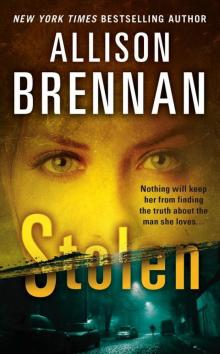 Stolen (Lucy Kincaid Novels)
Stolen (Lucy Kincaid Novels)